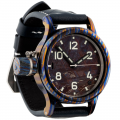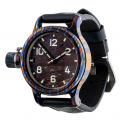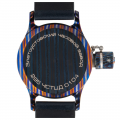Actor, film producer, businessman, former bodybuilder and politician
The annual Arnold Strongman Classic, the competition for the strongest people in the world, took place in Columbus, Ohio, for several days. Mikhail Koklyaev came to the tournament as Valeriy Savin’s coach. What is more, the strongman tried to break the world record in the single arm dumbbell power jerk. And, traditionally, the famous Chelyabinsk strongman presented gifts to Arnold Schwarzenegger, the founder of the competition.
Three athletes from Chelyabinsk were planning to take part in the Arnold Strongman Classic, but Alexey Serebryakov was denied the visa. So Chelyabinsk region was represented by Valeriy Savin and his coach Mikhail Koklyaev. This time the popular athlete decided to break the world record in the single arm dumbbell power jerk. He managed to lift 116.5 kg (256.8 lb) with his right hand, but the blister on his hand came off and didn’t let him secure the result.
Mikhail Koklyaev, who was wearing the Uralvagonzavod t-shirt, presented unique gifts to Arnold Schwarzenegger after the competition.
– In the photograph Arnold is holding a model tank T-90s from Uralvagonzavod and a 193 CHS dive watch from the Zlatoust Watch Factory, the first model in a titanium case. It was my pleasure to present them to him, God bless him, – Mikhail Koklyaev posted on his social network VKontakte page.
It is interesting to note that it was not the first gift that the Hollywood actor got from the Chelyabinsk athlete. In 2003 Mikhail Koklyaev presented Arnold Schwarzenegger with a greatcoat of a police academy colonel. The former Governor of California was genuinely glad about his unique souvenir. Last time he wore Russian military uniform while filming Red Heat in 1988. Arnold Schwarzenegger looked great in the Soviet militsioner (police officer) greatcoat as captain Ivan Danko. Mikhail Koklyaev «promoted» the actor to a higher rank and suggested a movie sequel.

.png)



.png)
.png)
.png)
.png)
.png)
.png)
.png)



.png)
.png)
.png)
.png)
.png)
.png)























